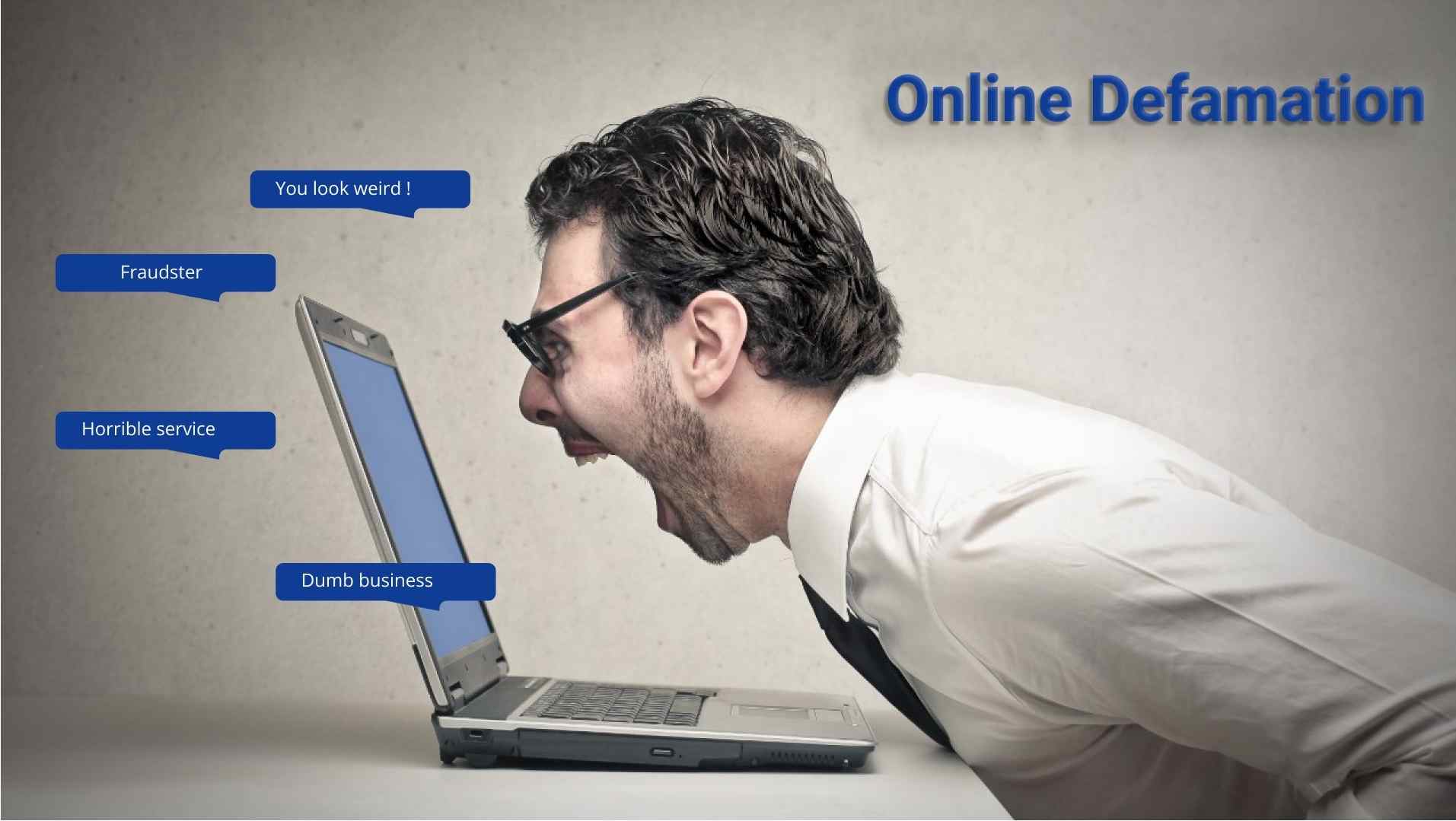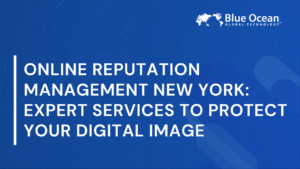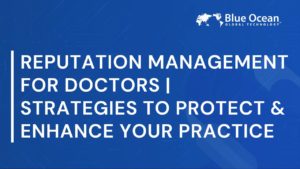Defamation protection ensures that individuals and businesses can defend their reputations against harmful false statements. Defamation can take many forms, but its primary impact lies in damaging trust, credibility, and professional opportunities. Effective legal defenses and remedies are essential for reclaiming integrity and addressing reputational harm. Competitor analyses reveal actionable strategies by directly exploring legal standards, practical examples, and advice relevant to protecting against or responding to defamation.
This article provides an authoritative guide to defamation law, practical defenses, and remedies critical for individuals and businesses alike—whether offline or in the digital landscape. Blue Ocean Global Technology offers specialized support in online reputation management and expertise in resolving complex online defamation cases efficiently and effectively.
What Is Defamation?
Defamation occurs when a false statement, presented as fact, results in harm to an individual’s or entity’s reputation. For a statement to qualify as defamatory, it must meet specific legal standards, often tied to proof of harm and intent.

What Are the Elements of Defamation?
To succeed in a defamation case, plaintiffs must meet fundamental legal elements:
- False Statement: The statement must be demonstrably false.
- Publication to a Third Party: It must be communicated to someone other than the individual targeted.
- Reputation Harm: The statement must cause measurable damage to the plaintiff’s reputation.
- Fault or Negligence: Courts evaluate whether the defendant acted negligently or with intentional malice.
The distinction between intentionality and negligence often influences liability. For example, in cases involving private individuals, negligence may suffice, while public figures typically need to prove intentional or reckless disregard for the truth.
What Are the Two Types of Defamation?
Defamation is classified into two main categories: libel and slander, which differ based on the medium of communication.
- Libel refers to defamation in written, printed, or permanent form, such as newspapers or online posts. Its permanence generally increases its reach and impact.
- Slander, by contrast, involves transient forms of communication, such as spoken words during a conversation or broadcast.
Understanding the medium is significant because certain jurisdictions impose varying evidentiary requirements for libel versus slander. For example, damages are often presumed in cases of libel, while slander usually requires proof of quantifiable harm.
Is Defamation a Crime or Civil Offense?
Defamation is primarily treated as a civil offense, allowing the injured party to sue for damages. However, some jurisdictions recognize criminal defamation, typically addressing malicious or extreme reputational harm.
- Criminal Defamation: Punished under specific penal codes, it often requires intent to incite social harm or disrupt public order.
- Civil Defamation: Focuses on financial damages or remedies like retractions available through litigation.
Jurisdictional divergence plays a critical role, as countries or states may differ in their interpretation of defamation as a civil wrong or criminal act.
Legal Framework of Defamation Law
The overarching structure of defamation law balances protecting reputation with the right to free speech. While jurisdictional variations exist, certain principles are widely applicable.
What Are the General Legal Requirements for a Defamation Case?
Courts assess defamation based on:
- Defamatory Statement: Defined as communication that harms the victim’s standing in society.
- Publication: Proof that the statement was shared with at least one third party.
- Identification: Evidence that the statement referred to the plaintiff directly or indirectly.
Additionally, specific jurisdictions may impose statutes defining permissible damages and prioritizing media freedom.
Does the First Amendment Affect Defamation Cases?
In the United States, defamation law closely interacts with First Amendment protections. Free speech safeguards influence defamation rulings, ensuring a balance between expressive rights and reputational protection.
- Public officials and public figures face higher standards, often needing to prove actual malice—a knowing disregard for the truth.
- Private individuals, by contrast, need only show negligence, offering greater protection for those outside the public sphere.
This principle originates from landmark rulings like New York Times Co. v. Sullivan, which emphasized the vital role of free speech while delineating its limits.
Are There Additional Protections for Public Figures?
Public figures, including politicians and celebrities, encounter stricter thresholds in defamation cases, as courts prioritize open discourse surrounding public matters.
- Actual Malice Standard: Public figures must demonstrate that false statements were made intentionally or with reckless disregard.
- Private Individuals: Benefit from enhanced protections, as they do not voluntarily expose themselves to public scrutiny.
By establishing these distinctions, courts uphold fairness while preserving accountability in public commentary.
Defenses and Privileges in Defamation Cases
Defendants accused of defamation can invoke several defenses to refute liability or minimize damages.
What Are the Common Defenses to Defamation?
Some of the most widely accepted defenses in defamation cases include:
- Truth: A statement proven factually true serves as a complete defense against defamation.
- Opinion: Recognized in cases where declarations are clearly subjective and not presented as factual.
- Fair Report Privilege: Protects accurate reporting of judicial or governmental activities from defamation claims, ensuring transparency in public interest matters.
Implementing these defenses often requires gathering strong evidence, such as correspondences, videos, or verified records.
Are There Absolute and Qualified Privileges in Defamation?
Privileges safeguard specific types of communication against defamation liability:
- Absolute Privilege: Applies in government settings, such as legislative debates or judicial proceedings, where freedom of speech prevails.
- Qualified Privilege: Protects certain communications, like employment references or media reporting, when made in good faith and without intent to harm.
Applications of privilege depend on context and adherence to ethical communication standards.
What Is the Best Defense Against Defamation?
Proactively countering defamation involves combining preventative and defensive measures:
- Documentation: Retain detailed records of disputes or discussions that may lead to defamation claims.
- Public Relations Plans: Establish communication frameworks to address reputational threats.
Businesses and individuals alike gain critical advantages by preparing evidence and maintaining professional reputations effectively.
Social Media and Defamation in the Digital Age
The rise of social media has significantly expanded defamation risks, demanding stronger online reputation management strategies.
Can You Sue Someone for Defamation on Social Media?
Yes, social media defamation lawsuits are increasingly common. Courts evaluate cases based on:
- The platform, as some sites allow anonymity, complicating the identification of defendants.
- The evidence, including screenshots or archived links, ensuring the defamatory statements are documented.
Legal action is viable, but navigating platform policies and jurisdictional challenges often complicates the process.
What Are Examples of Online Defamation?
Online defamation includes harmful content like:
- False Reviews: Maliciously fabricated reviews intended to damage a business’s trust and profitability.
- Cyberbullying: Personal attacks targeting individuals on platforms via insults or accusations.
Such cases showcase how digital communication amplifies reputational consequences.
How Can You Protect Yourself Against Social Media Defamation?
Strategically managing your digital presence minimizes damage:
- Monitoring Tools: Utilize platforms like Google Alerts or third-party services to track mentions.
- Response Protocols: Develop clear policies for addressing harmful posts or reviews effectively.
The ability to act swiftly ensures reputational stability in the face of social media challenges.
Remedies and Consequences of Defamation
Individuals or businesses facing defamation pursue varied legal and non-legal remedies.

What Are the Legal Remedies for Defamation?
Victims may seek redress through:
- Damages: Compensation for lost earnings, reputational impact, or emotional distress.
- Apologies or Retractions: Court-ordered explanations designed to restore credibility.
Remedies can help victims reclaim trust while deterring future defamatory behavior.
What Are the Consequences of Defamation?
Defamation’s repercussions extend beyond financial loss:
- Emotional Impact: Leads to stress or reputational shame for individuals.
- Economic Harm: Businesses may lose customers or partnerships due to public disparagement.
The cost of inaction demonstrates the critical need for swift response strategies.
How Can Businesses Protect Their Reputations from Defamation?
Businesses should implement preemptive measures, such as:
- Establishing tailored crisis communication plans.
- Using detection tools, allowing early identification of defamatory content.
Proactive vigilance ensures resilience against defamation’s widespread risk.
Other Critical Insights on Defamation
Emerging complexities continue to shape defamation law, demanding nuanced responses.
What Are Key Issues in Cross-Jurisdictional Defamation Cases?
Global connectivity creates challenges in international defamation claims, including:
- Legal Variations: Courts may face conflicting laws or standards.
- Forum Shopping: Strategic plaintiffs exploit favorable jurisdictions for lenient rulings.
Navigating these disputes requires cross-border coordination and expert legal insight.
How Does Defamation Intersect With Privacy Laws?
Defamation and privacy violations increasingly overlap, as plaintiffs allege:
- Breach of Privacy: Sharing private details or false attribution of actions.
- Balancing Standards: Courts often weigh public interest concerns against reputational harm.
Case law adaptation continues to address innovative defamation claims.
What Is the Role of Case Law in Shaping Defamation Rulings?
Landmark rulings demonstrate evolving legal protections and standards. Case-specific reasoning often influences broader applications, highlighting the dynamic nature of defamation jurisprudence.
Expert legal support ensures individuals and entities stay informed and protected.
Conclusion
Defamation damages reputations emotionally, professionally, and economically. Protecting against such harm requires awareness of legal standards, effective defenses, and modern tools for managing risks. Blue Ocean Global Technology offers tailored support to uphold reputations in today’s digital landscape.
FAQs
What is defamation, and how is it legally defined?
Defamation is a false statement presented as fact that harms an individual’s or business’s reputation. It is categorized into libel (written) and slander (spoken).
Can defamation be both a civil and a criminal offense?
Yes, while defamation is primarily treated as a civil offense, some jurisdictions recognize criminal defamation, especially when malicious intent to harm public order is proven.
What are the key elements required to prove a defamation case?
The plaintiff must prove the statement was false, published to a third party, caused reputational harm, and was made with fault (negligence or malice).
How can businesses protect themselves from defamation?
Businesses can proactively monitor their online presence, respond promptly to negative content, and develop a crisis communication plan to mitigate reputational damage.
Facing Defamation?
Discover your legal options and protect your brand's credibility












